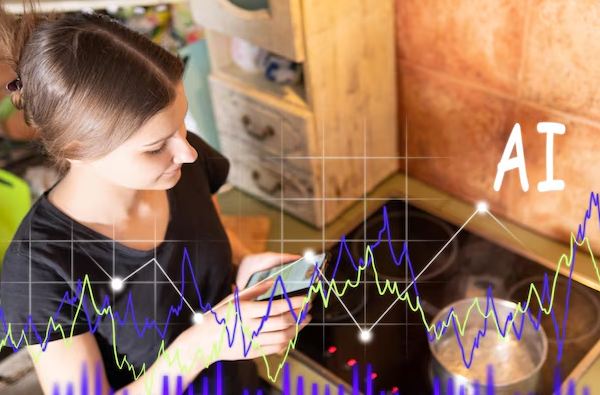The stock market has long been a complex and often unpredictable environment. As technology advances, one of the most intriguing questions arises: Can Artificial AI that predicts stock market movements? are available This article delves into the capabilities of AI in financial forecasting, exploring its potential, challenges, and implications for investors.
1. Understanding AI in Financial Forecasting
- Definition of AI: AI refers to the simulation of human intelligence in machines programmed to think and learn like humans. In finance, AI algorithms analyze vast amounts of data to identify trends and make predictions.
- Types of AI Technologies: Common AI technologies used in stock market analysis include machine learning, natural language processing, and neural networks. Each plays a role in processing data and generating insights.
2. The Power of Data
- Big Data Analytics: The stock market generates an immense amount of data daily, including historical prices, trading volumes, and economic indicators. AI excels at processing and analyzing this data efficiently.
- Diverse Data Sources: Beyond traditional financial data, AI can incorporate alternative data sources such as social media sentiment, news articles, and even weather patterns, providing a more comprehensive view of market dynamics.
3. Predictive Models and Techniques
- Machine Learning Models: These models use historical data to train algorithms that can predict future stock movements. Techniques like regression analysis, decision trees, and support vector machines are commonly employed.
- Deep Learning: This advanced form of machine learning uses neural networks to identify complex patterns in large datasets. Deep learning has shown promise in predicting market trends by processing unstructured data, such as news articles.
4. Sentiment Analysis
- Market Sentiment: AI can gauge public sentiment towards stocks by analyzing social media posts, news headlines, and financial reports. This insight can be crucial, as market sentiment often influences stock prices.
- Natural Language Processing (NLP): NLP algorithms can interpret human language, allowing AI to analyze qualitative data and derive sentiment metrics that impact trading decisions.
5. Algorithmic Trading
- Automated Trading Systems: AI-driven algorithms can execute trades based on predefined criteria, often at speeds unattainable by human traders. This allows for rapid responses to market changes.
- High-Frequency Trading (HFT): AI plays a significant role in HFT, where algorithms make thousands of trades per second, capitalizing on small price discrepancies and trends that may last just moments.
6. Benefits of AI in Stock Market Prediction
- Increased Efficiency: AI can analyze data and make predictions much faster than human analysts, enabling quicker decision-making in a fast-paced market.
- Improved Accuracy: By recognizing complex patterns and trends, AI models can potentially outperform traditional methods of stock analysis, leading to more accurate predictions.
- Emotionless Decision-Making: AI operates based on data and algorithms, reducing the impact of human emotions and biases, which can cloud judgment in trading.
7. Challenges and Limitations
- Market Volatility: The stock market is influenced by numerous unpredictable factors, including geopolitical events and economic changes. AI predictions may struggle to account for sudden market shifts.
- Data Quality: The effectiveness of AI models heavily relies on the quality of the data used. Inaccurate or biased data can lead to flawed predictions.
- Overfitting: This occurs when a model is too complex and captures noise rather than the underlying trend. Overfitted models may perform well on historical data but fail in real-world scenarios.
8. The Role of Human Judgment
- Complementary Approach: While AI can enhance forecasting, human expertise remains invaluable. Combining AI insights with human judgment can lead to more informed investment decisions.
- Understanding Context: Human analysts can interpret the broader context of market events, incorporating qualitative factors that AI may overlook.
9. Future Trends in AI and Financial Forecasting
- Enhanced Algorithms: As AI technology advances, we can expect more sophisticated predictive models that can better adapt to changing market conditions.
- Integration with Blockchain: The combination of AI and blockchain technology could improve data transparency and security, further enhancing predictive accuracy.
- Ethical Considerations: As AI becomes more prevalent in finance, ethical considerations such as data privacy, algorithmic bias, and accountability will need to be addressed.
Conclusion
The potential of AI to predict the stock market represents a significant shift in financial forecasting. While it offers numerous advantages, including efficiency, accuracy, and the ability to process vast amounts of data, challenges remain. The unpredictable nature of markets and the limitations of current AI technologies highlight the importance of a balanced approach that combines AI insights with human expertise. As we look to the future, the integration of AI into financial forecasting will undoubtedly evolve, shaping the landscape of investing for years to come. Investors who harness the power of AI while understanding its limitations will be better positioned to navigate the complexities of the stock market.





Comments